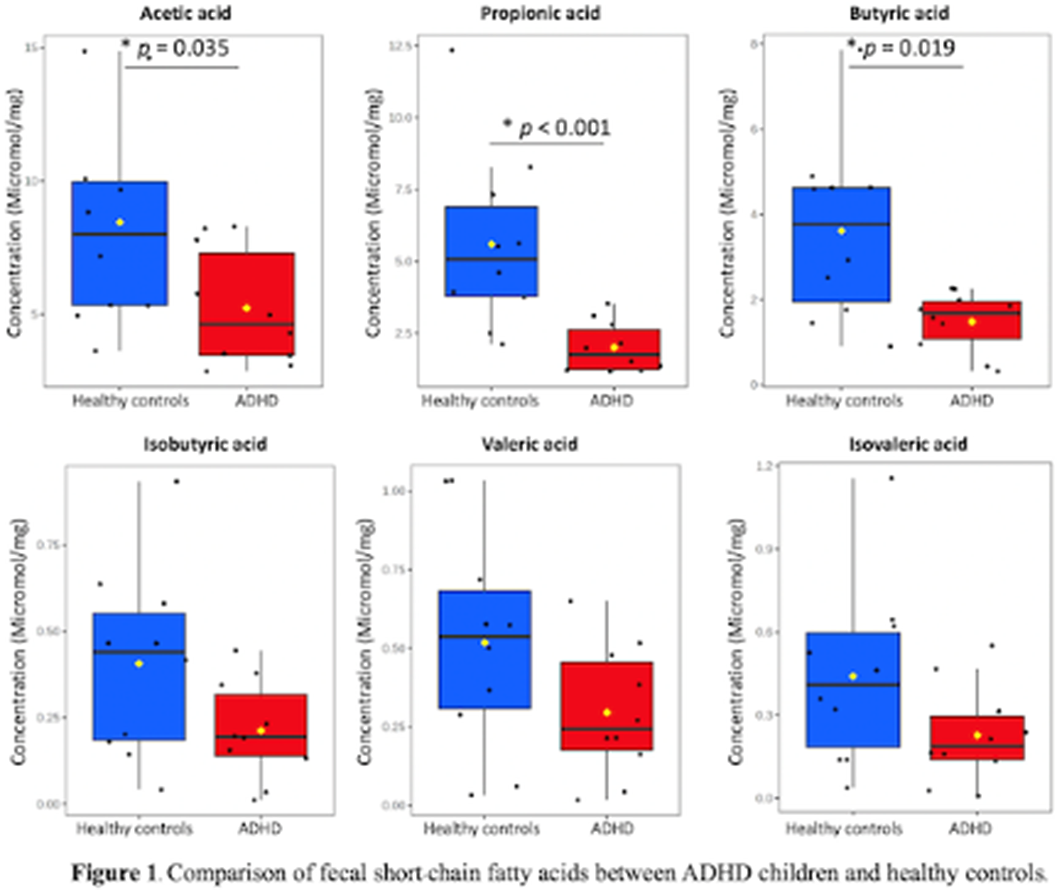No CrossRef data available.
Published online by Cambridge University Press: 19 July 2023
Growing evidence supports a possible link between gut microbiota and attention-deficit/hyperactivity disorder (ADHD) via the gut-brain axis. Short-chain fatty acids (SCFAs), the major metabolites produced by gut microbiota through anaerobic fermentation, may influence gut-brain communication.
To determine the alterations of gut microbiota and fecal SCFAs in children diagnosed with ADHD compared to healthy subjects.
Fecal samples were collected from children with ADHD (n=10), and age- and sex-matched healthy controls (n=10) for gut microbiota and SCFAs analysis.
There were no significant differences in the abundance of any bacterial phyla in feces between groups. However, fecal concentrations of acetic acid, propionic acid, and butyric acid were significantly lower in children with ADHD compared to those of controls (Figure1). Interestingly, acetic acid and propionic acid levels were negatively correlated with ADHD symptoms (Table 1). Macronutrient and fiber intake, determined from food frequency questionnaires, did not differ between groups.Table 1.
| B | p-value | 95%CI | |||
|---|---|---|---|---|---|
| Inattention score | |||||
| Acetic acid | -0.14 | 0.009 | -0.24, -0.04 | ||
| Propionic acid | -0.18 | 0.006 | -0.30, -0.06 | ||
| Hyperactive/Impulsive score | |||||
| Acetic acid | -0.10 | 0.031 | -0.20, -0.01 | ||
| Propionic acid | -0.14 | 0.018 | -0.25, -0.03 | ||
| Combined score | |||||
| Acetic acid | -0.12 | 0.014 | -0.22, -0.03 | ||
| Propionic acid | -0.16 | 0.008 | -0.27, -0.05 | ||
Image:

Our findings suggested that gut dysbiosis was possibly developed in children with ADHD, as indicated by a significant decrease in fecal SCFAs. In fact, fecal acetic acid, propionic acid, and butyric acid may potentially be the early detector for ADHD. In addition, fecal acetic acid and propionic acid could be potential biomarkers for the severity of ADHD.
None Declared
Comments
No Comments have been published for this article.